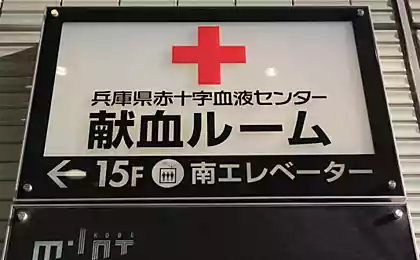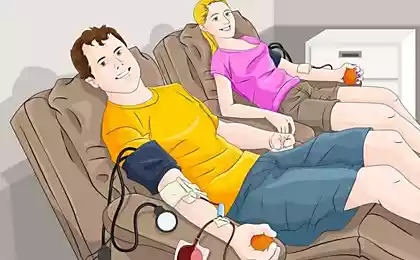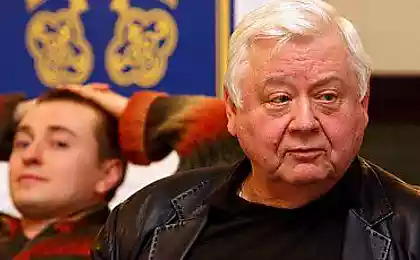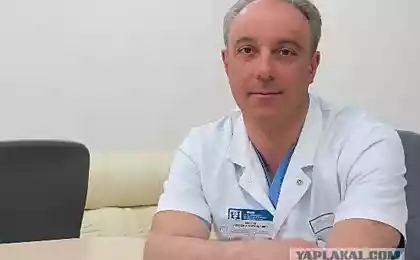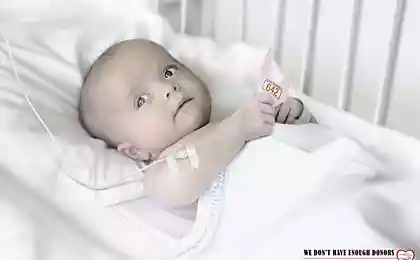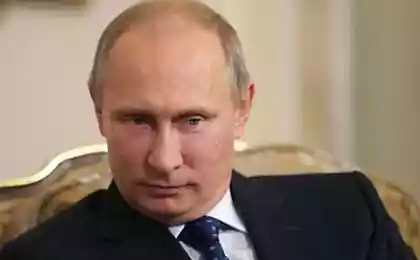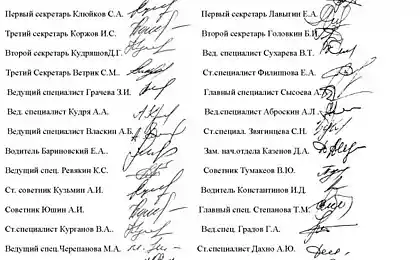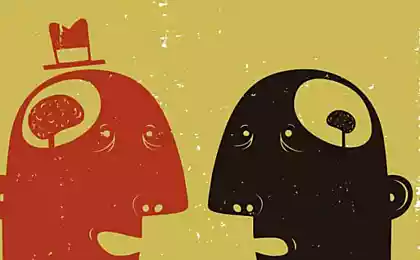482
In Russia increases the pressure of lobbyists "post-mortem" organ donation
The modern reality is often such that open eyes to look at her scared. In the information age people were not ready for these challenges, he has become not able not only to understand what is happening, but sometimes even just commit the changes, the speed of which is prohibitively high.
One of the most acute problems of recent times is the so-called "post-mortem" organ donation. Most likely, the real truth about him, many people recognize, but only if, God forbid, encounter him in his personal situation.
Eighty two million five hundred eighty nine thousand fifty four
It is important to emphasize that we are not talking about the whole transplant, which gives you the opportunity to help a heavy patient, transplanted cadaveric or related kidney or bone marrow here, everything is open and everyone understands what is happening."Post-mortem" donation – other sphere, where originally laid false promises and perverted reason.
When we are told that during this process the organs of the victim when, by definition, they are not needed, and even refer to "the approval of the Church", however, Catholic – say, in Spain on the doors of the churches were placed a sign reading: "don't take your organs to heaven. Leave them here, they will be useful on the ground" – that carry out a huge hoax, because in reality, no post-mortem organ donation does not exist.
Created our eyes about the concept of the so-called "post-mortem" organ donation is based on two principles – "brain death is the death of man" and "presumption neoprotemnodon consent."
This is the fundamental difference from our previous conceptions of a person's death: before he was considered dead, when he was not breathing, heartbeat, reflexes absent, pupil unresponsive to light, was attended by rigor Mortis and lividity, with the adoption of the new criteria for "admission to the dead" was enough to be unconscious, though breathing.
The cause of "brain death" (the coma) can be a accident, head injury, stroke, poisoning by toxic substances, endocrine crisis; at the same time, from the zone of attention of the doctors disappeared, the idea of the reversible or irreversible nature of the coma.
Still not dead, but not alive
In the field of medicine suddenly formed a new "life form": the person is still alive, but the doctors have to be dead – it goes into the category of potential donors; and if no one to protect him, he becomes the donor of the real, and then he can legitimately take his organs.
The dead in the old, traditional sense, a man could pick up for a kidney transplant only because it is the only organ that can withstand a lack of blood supply within 15 minutes; the application of the criterion of "brain death" has allowed to create a "multi-organ donation".
Of imposed civilization "post-mortem" donation of a person essentially must be alive – only then his organs viable for transplant. Change code civilization began relatively recently, in 1968, the United States was adopted, "Harvard diagnostic criteria of brain death" in 1968 and 1983 were supplemented by the "Sydney Declaration on death," in 1983 – "the Venice Declaration of a terminal condition," and in 1972, the American neurological Association recognized the basic concept of brain death, establishing death of a person only on the death of the brain.
In 1991, the world health organization (who) adopted the "Guidelines for transplantation of human cells, tissues and organs", which established the subsequent practice of transplantation and related legislation worldwide.
In 2008 it adopted the "Declaration of Istanbul on transplant tourism," in which the transplant stated, in particular, that the world is in a state of "global shortage of donor organs," and that "each country should guarantee the implementation of programmes, warning the deficit".
In Russia norms of "post-mortem" organ donation was legally enshrined in the law №4180-1 "About transplantation of bodies and (or) tissues" (1992) and No. 323-FZ "About bases of health protection of citizens in the Russian Federation" (2011).
Sixteen million one hundred forty eight thousand nine hundred fifteen
"Post-mortem" donation in Russia
If still rules in Russia of the man could "receive" a total of six bodies in 2015, according to the joint order of the Ministry of health of Russia and Russian Academy of Sciences No. 367/3 "On approval of the list of objects of transplantation", the list had expanded to 50 positions:
the amniotic sheath; exposed shell of the egg; the complex is vascularized soft tissue, including the dermal layer of the skin, subcutaneous fat and muscles; upper extremity and its fragments; the temporal fascia; the eyeball (cornea, sclera, lens, retina, conjunctiva); the gut and its fragments; complex heart-lung; bones of the cranial vault, bone marrow, lung, lower limb and fragments of the lower jaw; liver; pancreas with duodenum 12; subcutaneous fat plantar region of the foot; kidney; spleen; heart; serous capsule of the liver; blood vessels (segments of the vascular bed); the trachea; the fibrous capsule of kidney; endocrine glands (pituitary gland, adrenal glands, thyroid gland, parathyroid gland, salivary gland, testis).
Then there was "the order of Ministry of health of the Russian Federation, the Russian Academy of Sciences from June 4, 2015 N 307н/4 "On approval of the list of health care institutions engaged in the taking, preparation and transplantation of organs and (or) fabrics of the person", defined 65 medical institutions of the country (up from 20), which can now take the organs, and 34 institutions in which these organs will be transplanted.
In June 2015, was adopted by the "law of the Kalashnikov" about creating databases of potential donors and their organs.
Now in Moscow and St. Petersburg there were Focal points of organ donation on the basis of which created teams of transplant; in full swing preparing for the opening of the center in Surgut.
At the first signal received on the potential donor, the transplant teams to travel from the Center to hospitals that carry out air conditioning (ICU) of the bodies subject to transplant (but not human), unlike intensive care, get allowance, and at the right moment seize them.
Last year in Russia there have been several high-profile cases related to postmortem donation: in the ICU, my relatives, people "dismantled the organs", and the perpetrators were not, because "everything was according to the law."
In "Guideline of who," No. 5 prohibits the sale of organs and tissues, but in fact around the world "post-mortem" organ donation has become a highly criminalized business, which manifests itself primarily in areas of armed conflict, for example, in Yugoslavia, in Ukraine, in Russia in 2003, a lot of fuss about a scandal with a fence of kidneys at live person experts of the coordination center in Moscow hospital No. 20.
According to the order from December 25, 2014 N 908-n "On the procedure for the diagnosis of brain death of man", from 1 January 2016 in Russia post-mortem donors were children 1 year of age.
Why corpse anesthesia?
In 2005, Germany established a social movement, CAO, unites parents, gave consent to the removal of organs from their children had an accident or another situation that resulted in a coma.
The movement was founded by parents who believed the doctors that they got in a car accident fifteen year old son is not a tenant, and has given consent to the removal of his organs. When the funeral they saw the face of his son, that he suffered terribly before death, they could not forgive your consent. The future life they have dedicated to inform parents, as actually looks "post-mortem" organ donation. Among other things, they ensure that the company "recognized the mortality of man" and "refused medicine, which uses the death of one patient to treat another."
If "post-mortem" donation of a 97% of the body is still alive, and that another living person cut from top to bottom longitudinal movement or crosswise, and took out a still-working organs, a beating heart, breathing lungs. The person also feels pain, he continued to operate the organs, the glands secrete a secret, preserved reflexes.
In Germany some doctors not wanting to deal with trying to fight back, with convulsions of the so-called "corpse" during the seizure from him of the bodies still give him a sedative or analgesic is administered. The question is: if it's a corpse, why him anesthesia, and when anesthetized, the body is it?
All "pre-agree“
The second basic principle of "post-mortem" organ donation presumes consent from a potential donor to the removal of their organs.
In the world adopted two forms of consent – presumption "of consent requested" (as in the UK), when a person writes a statement about the desire to become a donor, and the presumption "neoprotemnodon consent" — when man not only says nothing, but often does not even suspect about someone's intention to take his organs.
In Russia since 1992, there is a presumption "neoprotemnodon consent", and we are all potential "post-mortem" donors "default".
For this reason in the "Bases of the social concept of the Russian Orthodox Church" said: "it is Unacceptable to shorten the life of one person, including through a refusal to perform life-sustaining procedures to prolong the life of another. (…)"
The so-called presumptive consent of a potential donor to the removal of organs and tissues of his body enshrined in the legislation of some countries, The Church considers unacceptable violation of human freedom.
"The donation of organs and tissues osoytsa perceiving them in person (the recipient), including in the sphere of his personal spiritual-bodily unity". XII.7.
Unfortunately, the constitutional court of the Russian Federation has twice (2003 and 2016) ignored the moral norm and the views of citizens and supported the legality of article 8 of the "Presumption of consent for removal of organs and (or) tissues" of the Law of the Russian Federation from December 22, 1992 № 4180-I "About transplantation of bodies and (or) tissues".
The possibility of rejection of the prospect of becoming "post-mortem" donor very vaguely spelled out in the law no-FZ №323 "On the fundamentals of health protection of citizens in Russia": it can be notarized failure or a mark made in a medical card signed by doctor.
How does this help in situation of an accident, disaster, as well as stroke, severe injuries, including while on the beach, in the bath, and so on.? Perhaps the most effective means would be the only tattoo on his forehead…
Seventy two million eight hundred twenty nine thousand eight hundred seventeen
Meanwhile, according to the famous researcher Sam parnia of, on the basis of observations of 2060 patients who underwent cardiac arrest in 15 hospitals in the UK, USA and Australia, "death is not a moment but a process, and its timing and the end – not in our power."
Blitzkrieg "post-mortem" organ donation in Russia
So, in 2015 in Russia there was a blitzkrieg by the bursting of the new pseudo-norm in our lives. Laws were adopted on the establishment of databases of donors (registers) of removal from the donor age restriction, the extension of the list of seized authorities about increasing the number of hospitals in which these bodies can take.
On the approach of the draft law of the Ministry of health on the donation, which will introduce a new profession – transplant coordinator; creation of a network of transplant coordinators, will create logistics for withdrawing organs and regulate their flows.
Also in the wings waiting in the state Duma the bill №717040-6 "On biomedical cell products", involving the use of tissues of embryos for the manufacture of drugs.
The company does not cease to suggest that "post-mortem donation" – a process carried out with the body after death, and that it is very noble to give your consent to the transfer of own organs to another person. Not knowing the true picture of what it looks like "post-mortem" organ donation, people want to believe that is a good thing. Like, I died, I already it is not necessary – well, even though the other will serve.
The moments of birth and death are sacred moments in the mind of any person, in the consciousness of society, which has always been a mystery, and knows the essence of the one Creator. But now in this place suddenly there is someone in a white robe and says: "to Save human too costly, and put to use what else it may be useful – on the contrary, cost-effective".
Here it is precisely the visible signs of dehumanization: human society loses its Foundation, its traditional values; are replaced by the so-called "economic feasibility", when "everything is for sale".
Civilization has come to a stage where those who are stronger, cut people alive who are unable to stand up for themselves, can't fight back, can't fight, can't defend themselves. With this approach, the degeneration of humanity is a real and imminent prospect.
Summing up, it should be emphasized that the donation from a living donor, related donor, the phenomena themselves, indeed, are noble and cannot be a source of anxiety: man defines himself by his willingness to serve the neighbour and controls all of the associated decision risks and circumstances.
But in a situation advance the so-called "post-mortem" organ donation society cynically and shamelessly deceive, and no high words can't justify.
We must abandon the presumption of consent, to tell people the truth about the so-called "post-mortem" donation of, to reveal the details and describe the mechanisms of this process, and only after that to offer everyone to make a conscious choice. And, of course, need to cancel the concept of "brain death" as equivalent to the end of human life.published
Author: Lyudmila Ryabichenko
P. S. And remember, only by changing their consumption — together we change the world! ©
Join us in Facebook , Vkontakte, Odnoklassniki
Source: www.nakanune.ru/articles/111482/
One of the most acute problems of recent times is the so-called "post-mortem" organ donation. Most likely, the real truth about him, many people recognize, but only if, God forbid, encounter him in his personal situation.
Eighty two million five hundred eighty nine thousand fifty four
It is important to emphasize that we are not talking about the whole transplant, which gives you the opportunity to help a heavy patient, transplanted cadaveric or related kidney or bone marrow here, everything is open and everyone understands what is happening."Post-mortem" donation – other sphere, where originally laid false promises and perverted reason.
When we are told that during this process the organs of the victim when, by definition, they are not needed, and even refer to "the approval of the Church", however, Catholic – say, in Spain on the doors of the churches were placed a sign reading: "don't take your organs to heaven. Leave them here, they will be useful on the ground" – that carry out a huge hoax, because in reality, no post-mortem organ donation does not exist.
Created our eyes about the concept of the so-called "post-mortem" organ donation is based on two principles – "brain death is the death of man" and "presumption neoprotemnodon consent."
This is the fundamental difference from our previous conceptions of a person's death: before he was considered dead, when he was not breathing, heartbeat, reflexes absent, pupil unresponsive to light, was attended by rigor Mortis and lividity, with the adoption of the new criteria for "admission to the dead" was enough to be unconscious, though breathing.
The cause of "brain death" (the coma) can be a accident, head injury, stroke, poisoning by toxic substances, endocrine crisis; at the same time, from the zone of attention of the doctors disappeared, the idea of the reversible or irreversible nature of the coma.
Still not dead, but not alive
In the field of medicine suddenly formed a new "life form": the person is still alive, but the doctors have to be dead – it goes into the category of potential donors; and if no one to protect him, he becomes the donor of the real, and then he can legitimately take his organs.
The dead in the old, traditional sense, a man could pick up for a kidney transplant only because it is the only organ that can withstand a lack of blood supply within 15 minutes; the application of the criterion of "brain death" has allowed to create a "multi-organ donation".
Of imposed civilization "post-mortem" donation of a person essentially must be alive – only then his organs viable for transplant. Change code civilization began relatively recently, in 1968, the United States was adopted, "Harvard diagnostic criteria of brain death" in 1968 and 1983 were supplemented by the "Sydney Declaration on death," in 1983 – "the Venice Declaration of a terminal condition," and in 1972, the American neurological Association recognized the basic concept of brain death, establishing death of a person only on the death of the brain.
In 1991, the world health organization (who) adopted the "Guidelines for transplantation of human cells, tissues and organs", which established the subsequent practice of transplantation and related legislation worldwide.
In 2008 it adopted the "Declaration of Istanbul on transplant tourism," in which the transplant stated, in particular, that the world is in a state of "global shortage of donor organs," and that "each country should guarantee the implementation of programmes, warning the deficit".
In Russia norms of "post-mortem" organ donation was legally enshrined in the law №4180-1 "About transplantation of bodies and (or) tissues" (1992) and No. 323-FZ "About bases of health protection of citizens in the Russian Federation" (2011).
Sixteen million one hundred forty eight thousand nine hundred fifteen
"Post-mortem" donation in Russia
If still rules in Russia of the man could "receive" a total of six bodies in 2015, according to the joint order of the Ministry of health of Russia and Russian Academy of Sciences No. 367/3 "On approval of the list of objects of transplantation", the list had expanded to 50 positions:
the amniotic sheath; exposed shell of the egg; the complex is vascularized soft tissue, including the dermal layer of the skin, subcutaneous fat and muscles; upper extremity and its fragments; the temporal fascia; the eyeball (cornea, sclera, lens, retina, conjunctiva); the gut and its fragments; complex heart-lung; bones of the cranial vault, bone marrow, lung, lower limb and fragments of the lower jaw; liver; pancreas with duodenum 12; subcutaneous fat plantar region of the foot; kidney; spleen; heart; serous capsule of the liver; blood vessels (segments of the vascular bed); the trachea; the fibrous capsule of kidney; endocrine glands (pituitary gland, adrenal glands, thyroid gland, parathyroid gland, salivary gland, testis).
Then there was "the order of Ministry of health of the Russian Federation, the Russian Academy of Sciences from June 4, 2015 N 307н/4 "On approval of the list of health care institutions engaged in the taking, preparation and transplantation of organs and (or) fabrics of the person", defined 65 medical institutions of the country (up from 20), which can now take the organs, and 34 institutions in which these organs will be transplanted.
In June 2015, was adopted by the "law of the Kalashnikov" about creating databases of potential donors and their organs.
Now in Moscow and St. Petersburg there were Focal points of organ donation on the basis of which created teams of transplant; in full swing preparing for the opening of the center in Surgut.
At the first signal received on the potential donor, the transplant teams to travel from the Center to hospitals that carry out air conditioning (ICU) of the bodies subject to transplant (but not human), unlike intensive care, get allowance, and at the right moment seize them.
Last year in Russia there have been several high-profile cases related to postmortem donation: in the ICU, my relatives, people "dismantled the organs", and the perpetrators were not, because "everything was according to the law."
In "Guideline of who," No. 5 prohibits the sale of organs and tissues, but in fact around the world "post-mortem" organ donation has become a highly criminalized business, which manifests itself primarily in areas of armed conflict, for example, in Yugoslavia, in Ukraine, in Russia in 2003, a lot of fuss about a scandal with a fence of kidneys at live person experts of the coordination center in Moscow hospital No. 20.
According to the order from December 25, 2014 N 908-n "On the procedure for the diagnosis of brain death of man", from 1 January 2016 in Russia post-mortem donors were children 1 year of age.
Why corpse anesthesia?
In 2005, Germany established a social movement, CAO, unites parents, gave consent to the removal of organs from their children had an accident or another situation that resulted in a coma.
The movement was founded by parents who believed the doctors that they got in a car accident fifteen year old son is not a tenant, and has given consent to the removal of his organs. When the funeral they saw the face of his son, that he suffered terribly before death, they could not forgive your consent. The future life they have dedicated to inform parents, as actually looks "post-mortem" organ donation. Among other things, they ensure that the company "recognized the mortality of man" and "refused medicine, which uses the death of one patient to treat another."
If "post-mortem" donation of a 97% of the body is still alive, and that another living person cut from top to bottom longitudinal movement or crosswise, and took out a still-working organs, a beating heart, breathing lungs. The person also feels pain, he continued to operate the organs, the glands secrete a secret, preserved reflexes.
In Germany some doctors not wanting to deal with trying to fight back, with convulsions of the so-called "corpse" during the seizure from him of the bodies still give him a sedative or analgesic is administered. The question is: if it's a corpse, why him anesthesia, and when anesthetized, the body is it?
All "pre-agree“
The second basic principle of "post-mortem" organ donation presumes consent from a potential donor to the removal of their organs.
In the world adopted two forms of consent – presumption "of consent requested" (as in the UK), when a person writes a statement about the desire to become a donor, and the presumption "neoprotemnodon consent" — when man not only says nothing, but often does not even suspect about someone's intention to take his organs.
In Russia since 1992, there is a presumption "neoprotemnodon consent", and we are all potential "post-mortem" donors "default".
For this reason in the "Bases of the social concept of the Russian Orthodox Church" said: "it is Unacceptable to shorten the life of one person, including through a refusal to perform life-sustaining procedures to prolong the life of another. (…)"
The so-called presumptive consent of a potential donor to the removal of organs and tissues of his body enshrined in the legislation of some countries, The Church considers unacceptable violation of human freedom.
"The donation of organs and tissues osoytsa perceiving them in person (the recipient), including in the sphere of his personal spiritual-bodily unity". XII.7.
Unfortunately, the constitutional court of the Russian Federation has twice (2003 and 2016) ignored the moral norm and the views of citizens and supported the legality of article 8 of the "Presumption of consent for removal of organs and (or) tissues" of the Law of the Russian Federation from December 22, 1992 № 4180-I "About transplantation of bodies and (or) tissues".
The possibility of rejection of the prospect of becoming "post-mortem" donor very vaguely spelled out in the law no-FZ №323 "On the fundamentals of health protection of citizens in Russia": it can be notarized failure or a mark made in a medical card signed by doctor.
How does this help in situation of an accident, disaster, as well as stroke, severe injuries, including while on the beach, in the bath, and so on.? Perhaps the most effective means would be the only tattoo on his forehead…
Seventy two million eight hundred twenty nine thousand eight hundred seventeen
Meanwhile, according to the famous researcher Sam parnia of, on the basis of observations of 2060 patients who underwent cardiac arrest in 15 hospitals in the UK, USA and Australia, "death is not a moment but a process, and its timing and the end – not in our power."
Blitzkrieg "post-mortem" organ donation in Russia
So, in 2015 in Russia there was a blitzkrieg by the bursting of the new pseudo-norm in our lives. Laws were adopted on the establishment of databases of donors (registers) of removal from the donor age restriction, the extension of the list of seized authorities about increasing the number of hospitals in which these bodies can take.
On the approach of the draft law of the Ministry of health on the donation, which will introduce a new profession – transplant coordinator; creation of a network of transplant coordinators, will create logistics for withdrawing organs and regulate their flows.
Also in the wings waiting in the state Duma the bill №717040-6 "On biomedical cell products", involving the use of tissues of embryos for the manufacture of drugs.
The company does not cease to suggest that "post-mortem donation" – a process carried out with the body after death, and that it is very noble to give your consent to the transfer of own organs to another person. Not knowing the true picture of what it looks like "post-mortem" organ donation, people want to believe that is a good thing. Like, I died, I already it is not necessary – well, even though the other will serve.
The moments of birth and death are sacred moments in the mind of any person, in the consciousness of society, which has always been a mystery, and knows the essence of the one Creator. But now in this place suddenly there is someone in a white robe and says: "to Save human too costly, and put to use what else it may be useful – on the contrary, cost-effective".
Here it is precisely the visible signs of dehumanization: human society loses its Foundation, its traditional values; are replaced by the so-called "economic feasibility", when "everything is for sale".
Civilization has come to a stage where those who are stronger, cut people alive who are unable to stand up for themselves, can't fight back, can't fight, can't defend themselves. With this approach, the degeneration of humanity is a real and imminent prospect.
Summing up, it should be emphasized that the donation from a living donor, related donor, the phenomena themselves, indeed, are noble and cannot be a source of anxiety: man defines himself by his willingness to serve the neighbour and controls all of the associated decision risks and circumstances.
But in a situation advance the so-called "post-mortem" organ donation society cynically and shamelessly deceive, and no high words can't justify.
We must abandon the presumption of consent, to tell people the truth about the so-called "post-mortem" donation of, to reveal the details and describe the mechanisms of this process, and only after that to offer everyone to make a conscious choice. And, of course, need to cancel the concept of "brain death" as equivalent to the end of human life.published
Author: Lyudmila Ryabichenko
P. S. And remember, only by changing their consumption — together we change the world! ©
Join us in Facebook , Vkontakte, Odnoklassniki
Source: www.nakanune.ru/articles/111482/


